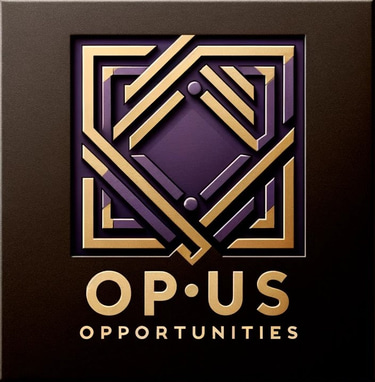Are You Only Hearing What You Want to Hear? The Hidden Impact of Confirmation Bias in the Workplace
How to recognize, challenge, and overcome confirmation bias in leadership and corporate culture
Kamy Charles
10/1/20251 min read


Every leader wants to make smart, strategic decisions. But too often, corporate workplaces fall victim to confirmation bias—the tendency to seek out information that supports what we already believe, while ignoring anything that challenges it.
The problem? Decisions feel safe… but lack real innovation.
---
How Confirmation Bias Shapes Corporate Decisions
In our work with leaders at Opus Opportunities, we see confirmation bias influencing:
1. Hiring & Promotions → Teams replicate themselves by hiring people who think, act, and look like them, instead of diversifying talent pipelines.
2. Project Approvals → Only the data that supports the “preferred plan” gets surfaced—opposing views are silenced or ignored.
3. Leadership Conversations → Decision-makers surround themselves with people who agree with them, reducing psychological safety for dissenting voices.
Over time, these patterns create echo chambers that stifle innovation and limit growth.
---
Why Confirmation Bias Hurts Performance
When confirmation bias goes unchallenged:
Innovation stagnates → New ideas are dismissed as “too risky.”
Engagement drops → Employees feel unheard when leadership ignores dissenting opinions.
Risk increases → Leaders overlook critical information that could prevent failures.
Workplaces that reward agreement over curiosity lose their competitive edge—and their top talent.
---
How Leaders Can Challenge Confirmation Bias
Here are three strategies to break the cycle:
1. Invite dissent on purpose → Create safe spaces for people to share opposing views.
2. Diversify decision-making groups → Bring in people with different expertise, backgrounds, and perspectives.
3. Use structured decision frameworks → Pre-define success metrics before reviewing data to avoid cherry-picking.
The goal isn’t constant conflict—it’s healthier decision-making.
---
Final Thought
Confirmation bias is comfortable, but comfort rarely leads to innovation.
Great leaders don’t just ask for agreement—they seek out perspectives that challenge their own.
